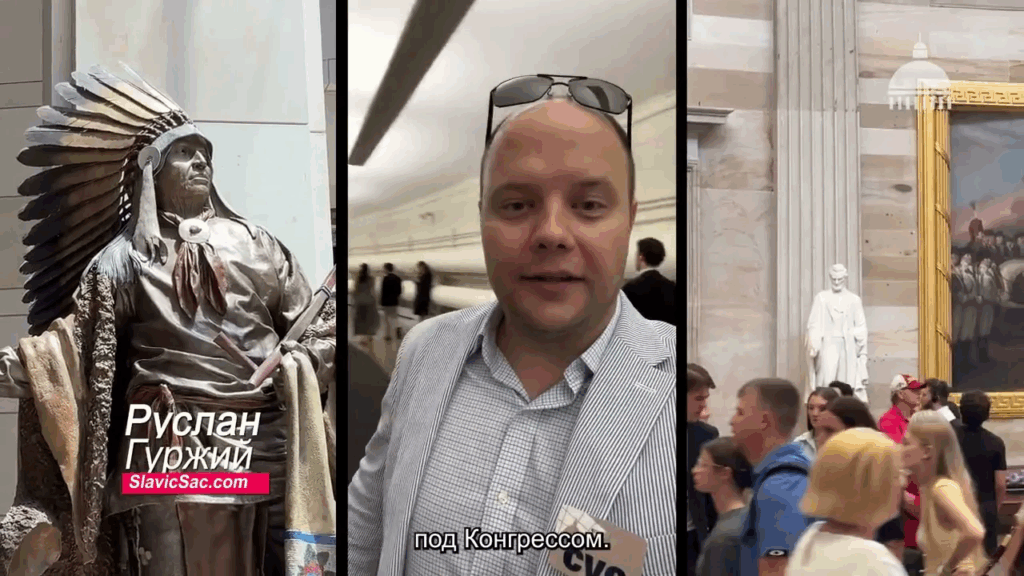When a few high school students in San Francisco decided to create a space for Slavic youth to share their voices, they had no idea how far those voices would travel. What began as a small creative project has grown into Slavic Voice for Ukraine—an international media platform uniting young writers and changemakers across the United States, Europe, and Central Asia. Through stories, poetry, and journalism, Slavic Voice for Ukraine has become a home for culture, dialogue, and youth leadership.
The team’s work extends far beyond publishing. Recently, members of Slavic Voice for Ukraine attended the Ukrainian Action Summit in Washington, D.C., where they met with elected officials, including Senator Adam Schiff, Senator Alex Padilla, and staff from the offices of Speaker Emerita Nancy Pelosi (CA-11), Representative Simon (CA-12), Representative Swalwell (CA-14), Representative Mullin (CA-15), Representative Liccardo (CA-16), and Representative Khanna (CA-17). At the summit, students learned from humanitarian experts, policy advisors, and diaspora leaders about the situation on the ground in Ukraine—and discussed how young people abroad can take meaningful action.
As youth advocates on the Hill, members of Slavic Voice for Ukraine were specifically asked to speak about the abduction and forced deportation of Ukrainian children—one of the most urgent and devastating humanitarian crises of the war. According to official data from the Government of Ukraine, more than 19,500 children have been officially identified as taken to Russia, while an estimated 1.6 million currently live under Russian occupation in territories where access to Ukrainian education, language, and culture has been systematically restricted. Many of these children have been placed in so-called “re-education” camps or adopted by Russian families. Among those implicated in the deportations is Maria Lvova-Belova, Russia’s Presidential Commissioner for Children’s Rights, who has publicly admitted to adopting a Ukrainian child herself but admitted that he did not want to go because he “loved Ukraine.” Her statement sparked international outrage and served as chilling evidence of Russia’s systematic effort to justify and normalize the illegal transfer of Ukrainian children. By raising awareness of these violations, Slavic Voice for Ukraine aimed to remind lawmakers that the safe return of every abducted child must remain a non-negotiable condition in any future peace agreement.
In meetings with congressional offices, the students urged lawmakers to support H.Res.564 and S.Res.236, bipartisan resolutions calling for the return of all abducted Ukrainian children before any peace agreement is finalized. They also discussed the REPO Act and PEACE Act, as well as additional sanctions and economic and strategic partnerships with Ukraine.
Looking ahead, the organization plans to use grant funds to expand its cultural and educational impact. Upcoming initiatives include translation services to publish articles in Ukrainian and other Slavic languages, as well as the production of a documentary about Ukraine, which may allow members to travel there and share on-the-ground stories. The team also hopes to launch advocacy days in California and other states, working with local leaders to promote legislation that supports Ukrainian refugees at the local level and raises awareness of the war’s human toll.
Slavic Voice for Ukraine was recently selected as a finalist for the National Society of High School Scholars “Be More” Grant, which awards $10,000 to the project whose video receives the most engagement. Winning the grant would enable the team to expand its cultural programming, host storytelling events, and create new opportunities for youth to share their voices.
You can support the team by engaging with their short video online—every like, comment, and share helps amplify the voices of young Slavic leaders and strengthens their mission to stand with Ukraine.
By: Leah Mordehai, Co-founder of Slavic Voice for Ukraine
